- Home
- Keith Douglass
Deathrace sts-7 Page 7
Deathrace sts-7 Read online
Page 7
Nothing happened.
He darted quickly through the opening and closed the wooden gate. A walkway led to the rear of the structure. It had two stories. The front of it was some kind of a retail store with windows covered by wooden panels locked in place. Trust your fellow man and he will trust you.
Right.
George found the rear door and knocked on it three times. He expected no reaction. Picking the lock would do no good. Everyone in this part of the world used locks with steel bars on the inside as well.
To his surprise the door opened a crack, and a small voice asked him a question. He caught only one word and that didn't make sense. He used the code word with hesitation. "Armageddon," he said. There was a pause, then a sucked-in breath. "Just a moment," the voice said in English. He heard movement inside, then the door opened more. "Not if we can prevent it," the countersign came.
"Thank God," George said. The door opened to a dimly lit interior.
"Come in, my friend. Come in. We have been expecting you. Things are not going well for us on this adventure."
The tall Iranian man, dressed in work clothes, held out his hand and George shook it.
"I'm George," he said.
"Call me Peter." The door closed and the two men went into a small room with cushions on the floor and a single light bulb burning in the corner.
"We know about Shahpur. His family claimed his body. Have you eaten? You need sleep? What can we do for you?"
George leaned against the wall. Suddenly he was tremendously tired. "Some sleep would be good, but first, do you know my mission here?"
The man called Peter shook his head. "None of us know."
"Yes, usually it's better that way. But now you must know. I need help in locating a facility. I have only two more contacts, and I'm afraid one of them has been picked up by the Secret Police already."
George told Peter about needing the exact location of the nuclear bomb fabrication plant in southern Iran.
The tall man sat on one of the cushions on the floor and rubbed his beard. "From time to time we hear stories. Nothing solid, no two alike. It's some marvelous weapon that will make Iran king of the whole Arab world."
"With one or more nuclear bombs, Iran could threaten all of the Arab states, and ensnare them into one giant confederation that could rule all of the near east," George said. "It would disrupt the balance of power and pit the Muslim world against the West."
"Yes, yes, it would be even worse than that," Peter said.
"Do you know anyone who might help us locate this facility? We know it's in the mountains somewhere north of the port city of Chah Bahar."
"That is many hundreds of miles away."
"Do you know anyone who has traveled down there, or used to live there? Anything we can learn will help."
"I know of no one who could aid us. Let me talk tomorrow to several friends who will not betray me. Now it's time for you to sleep."
"First I need to get to your roof. I must send another radio message. Don't worry, not the best radio receivers in Tehran could intercept the message and pinpoint it here."
Peter led him to the roof, where George set up the small dish antenna, aligned it, and sent off his message in a half-second burst.
The message said "George. Out of contacts. Site is in mountains north of Chah Bahar. Check satellite photos. Good road to it a must. Am at sight A. So far not compromised. Any ideas? George out."
Downstairs, George fell on a floor mattress, and went to sleep in minutes. Peter carefully checked the contents of the shoulder bag. There was no money in it — a few personal items, the radio, and a blank notebook and pens.
Peter watched the American for a time, then went to his own pallet. He would do some talking at the market tomorrow. If he could tie down the exact location, he could charge the Americans a year's wages. Peter smiled at the prospect. If everything worked out right tomorrow, he could be well on his way to achieving his retirement.
Across town in the Minister of Defense's office, four-star General Reza Ruhollah sat back at his desk, and frowned. His Secret Police had uncovered something sinister that made him nervous. They had caught a suspected agent for the United States with more than fifteen hundred U.S. dollars on his person.
He had tried to talk to, and probably bribe, an engineer who worked in the south on Project Equalizer. The engineer had told them of the traitor, and they had grabbed him and the money. When they went to the place where the spy's control was known to be, they were shot at, and whoever had been there escaped.
Could that person have been a U.S. CIA agent? General Ruhollah pondered it. There was a good chance. He stood, paced to the window, and stared out over his beloved Tehran. Well over seven million people lived here now. His nation held almost seventy million. Iran should be leading the Arab world in a once-and-for-all battle to drive the Western powers out of the Middle East.
When Project Equalizer was finished, they would have the power to do just that. It had been difficult. Iran had no history of such scientific wonders. Neither did it have the agencies, and the mechanics, to keep such a huge project secret. Somehow traces of news had leaked out. He knew the U.S. and Israel had agents in his country trying to gain the critical information they would need to halt or destroy the project.
He would not permit anything to happen to his facility the way it had near Baghdad, Iraq, in 1981. There Israeli jet fighters destroyed a nuclear reactor. Israel claimed the reactor would produce plutonium which could then be used for Iraq's nuclear weapons program already in development. They had been wrong. Iraq had no such program, and the Iraqis were too stupid to even try for something so complicated.
The problem was that Israel got away with the act of war against the traditional power in the Middle East without any world censure. It would not happen again. One Israeli agent had been caught and killed in a gun battle late last month. Now one U.S. agent — true, an Iranian — had been caught and eliminated. But where was his control, his master from the U.S.?
An aide came in after knocking. He was a trusted friend. He stopped three feet in front of the desk and waited to be recognized. The Defense Minister turned and nodded at him.
"General Ruhollah, we have good news. The huge American we have so long sought has been found. We haven't brought him here, because he's so big he won't go through the door to his quarters. But we have questioned him."
"This is the American we have been watching for, the one who supports every wild-eyed student protest, and several small groups agitating for rights for women?"
"The same, my General."
"Is he a spy for the United States?"
"We don't believe so, my General. He had no radio, no spy equipment, no code books, that sort of thing."
"What about U.S. currency?"
"Only ten dollars U.S. He said his mother sent it to him in a letter. Not enough to bother with, and U.S. dollars are not illegal in this country."
"On the other hand, Colonel, the U.S. dollar is much sought after by our oilmen, and merchants looking for hard currency. So, does this huge one have any tie-in with the U.S. spy your men did catch today?"
"Not that we know of, my General."
"Very well. Release the man. Put a camera in a hidden place and take pictures of everyone who enters or leaves his rooms."
"It shall be done."
General Ruhollah waved the colonel away. At least they knew where this huge American was now. He'd heard the man weighed more than six-hundred pounds. How much must he eat every day to keep up that much weight? Amazing.
General Ruhollah took a file out of a locked drawer in his desk and looked over the engineer's last report.
The machining of the metal similar to stainless steel was well under way. They still needed blanks for the manufacturing process.
He looked at some sketches the head engineer had done. One showed a folded cylinder of plutonium. Situated around this was a cylinder of beryllium. This is a very light, stiff metal, which w
ould form an X-ray window, and become a neutron reflector.
"Beryllium is difficult to machine," the engineer wrote. "We must use cubic boron-nitrate tools. Anything else, such as carbon or steel tools, will not give satisfactory results. We still need the powder form of tungsten-rhenium. We will sinter this into cylindrical segments."
The General stopped. Sintering, sinter. What did that mean? He checked a dictionary. Sinter heating matter just hot enough so it will form.
"The tungsten-rhenium will be used to form a cylinder around the beryllium for density. Around this cylinder goes our explosive-lens assembly."
General Ruhollah put down the report and rubbed his eyes. He had never taken science classes at the military academy. It was enough to learn to read and write, and then study the history of their country, the military history, and then to learn the ways of warfare. He had been trying to catch up ever since. Most of the reports by the engineers made no sense to him whatsoever. He did have two trusted scientists at the university who checked the reports weekly and gave him advice.
"Why does the project move so slowly?" he asked out loud. He knew that the science, the physics, of a nuclear bomb was no longer a secret. There were schematics of bombs on the Internet, and papers and manuals telling how to build a crude one.
They wanted one step up from crude, so it was taking longer. He dreamed of the day he would have the first operational bomb ready. He would tell the world about it, then threaten one neighbor with the total destruction of their capital city, if they did not surrender and become a part of the Greater Iranian Islamic Republic. What a day that would be!
There would be outrage around the world, but no nation would challenge him with its own nuclear weapons. He would use his if he had to, and the whole world knew it. Who would be the first Arab nation to capitulate and join forces with him? Iraq with its 25 million people? Maybe Syria with ports on the Mediterranean would be good. Then Jordan and Saudi Arabia. Yes!
He would put together a united nation of over 135 million people! That would be enough strength so the other world powers would have to recognize him.
Israel, with only 5 million people, would be a terrible problem. They never would capitulate. He might have to waste a bomb on them, or simply ignore them, and in time, bit by bit, drive them all into the sea.
He stared out the window, and dreamed his dream of great power and wealth. No one could stop him once he had the might of the nuclear bombs under his control. No one.
He looked back at his desk and saw the report on the dead Iranian who had been working for the U.S. Who had his control been? Where was the American CIA spy who pulled the man's strings? He had to find that infidel American spy quickly.
10
Sunday, October 23
0730 hours
SEAL training base
Coronado, California
Murdock looked up as Jaybird Sterling came through the door. "You called, L-T?"
"Right, we've got traveling orders for two men, Douglas and Franklin. They're flying out of North Island at thirteen hundred riding shotgun in a pair of Tomcats."
"This is a workday. The platoon knows. Everyone to report at oh eight hundred."
"Cut some orders for those two going to Saudi Arabia."
"What uniform, what gear?"
"Send them in cammies. To take small arms. Give them both NV-5's and thirteen-round HK P7 automatics. They'll be going in by air, HALO, and will be outfitted with Iranian clothes, and I.D. in Saudi. They'll get rials there as well for cash, and changes of clothes. They can get ammo in Saudi, so don't bother with that. Get both of them in here as soon as they show up."
"Aye, aye, L-T. This have any bearing on our month of training?"
"Probably not, Jaybird. Unless they can help root out some vital intel that the bombs are farther along than the brass thinks they are. We'll keep to our sched for now at least."
Murdock paused and gulped at his coffee. "Seen DeWitt yet?"
"No, sir. Shall I get Doc Ellsworth up here just for laughs?"
"Better not. This could be a damn touchy situation. Depends on Milly."
"Right, Sir. I'll bring in the guys when they come."
When Murdock looked up from his desk a minute later, a pretty face surrounded by short brown hair poked around the door frame.
"Any room at the inn?"
"Kat, come in. How many sets of cammies do you have?"
"Two."
"I'll order you six more. You'll need them. You on for long-gun shooting today, right?"
"That's what Lieutenant DeWitt said."
"He should be here shortly. Jaybird has ordered a car, and has laid out enough weapons, and ammo to sink a battleship. How was the swim?"
"Fine, but I'm a little out of shape."
Murdock grinned. "Really? That's not what Jaybird said. You left him in your wake."
"He's not used to competitive swimming. When I get in the water, I hate to have anybody ahead of me."
"Even the men triathlon swimmers?"
"Especially them."
"Swimming shouldn't be a problem for you here. We'll go in by air, almost for sure, but I'd guess our only way out will be to fight our way to the coast of southern Iran and take a long swim."
Jaybird came in towing his two SEALS. "Captured a pair for you, L-T."
"Good. Kat, I want you to listen to this." Murdock went over what he knew about the mission.
"So, that's about it. You don't have to play spy, although you will be going in with civilian clothes and gear, international brand weapons, and lots of rial to spend judiciously so you don't attract attention. You'll be meeting a man named George at site B, wherever that is."
"So we back up this guy, as he tries to tie down the exact location of the nuke plant?" Douglas asked.
"Right. Iran is tough with its Secret Police. We lost our native contact there, and George is feeling lonely. CIA would rather risk some of us than send in two more of their own. So we get the assignment."
"We HALO in," Franklin said. "How the hell do we get out?"
Murdock waved them over to look at an eight-by-ten fax of a map of Iran.
"Advice on the wire this morning is that once your mission is over, you radio out the pinpointed location, and then exfiltrate out of the area. They say the least sensitive route is to the north of Tehran, to the Caspian Sea. It borders Iran and Russia. The water is about sixty miles from Tehran. Then you should be able to find a boat, or work your way along the coast north to the border with Russia, and get across.
"At Baku, in Russia, there will be a CIA man. Baku is about two hundred miles north of the border with Iran."
"Sounds like a walk in the park," Douglas said.
"Yeah, or a long hike," Franklin said. "We volunteered for this duty, right?"
"Right, Franklin, and brush up on your Farsi — you'll be the mouthpiece for your twosome," Murdock said.
Franklin laughed. "Grandma said I'd be glad someday that she taught me to speak the old country language."
"You fly out of here at thirteen hundred, so get moving," Jaybird said. The three walked out of the office.
At the stroke of 0800, Ed DeWitt came in the door. His uniform was crisp and fresh, his face cleanly shaven but showing traces of strain and fatigue.
"Well, shipmates, look what my pit bull dragged in off the beach," Murdock said. He grinned. "Or is it road-kill?"
"Road-kill is closer to it," DeWitt growled. He sat in the chair across the desk and glanced up at Kat.
"Good morning, Lieutenant Garnet. I believe we're going to be doing some long-gun shooting today."
"Looking forward to it, Mr. DeWitt."
Jaybird came in and motioned to Kat. "Ma'am, we didn't set you up with a locker for your gear and personal things. We even have locks to show you how much we are a family here. Let me get you set up before you go on your picnic."
Kat nodded, and followed Jaybird into the squad room.
"So, what did Milly say?" Murdock
asked when they had left.
"About what I expected. She cried. She asked if I wanted her to move out. All the damn female emotional things. Then she seduced me three times last night. But the real surprise was this morning at five A.m. The alarm went off and she was all over me again. She said she'd totally satisfy my male libido so I'd think of Kat as nothing but another one of the guys. Oh, damn, she's right. It's really working."
Murdock chuckled. "One of Hollywood's leading men in the fifties had the same problem. His wife did him every morning before he went on the shoot. They were married for twenty-seven years."
"Sorry to hear it." DeWitt took a long breath, then grabbed the cup of coffee Jaybird handed him. "If I pass out on one of our training runs, don't call just any doctor, get me straight to my urologist for a hormone transplant."
Jaybird came back in grinning and tossed DeWitt a small plastic bottle. He read the label. "Might help," he said holding it up. "One-a-day vitamins." They all laughed.
Kat stowed the gear that Jaybird had issued her in her locker. It included all sorts of items she wasn't familiar with, including some kind of a SCUBA device she figured must be a rebreather for underwater swimming. She had everything in shape when Jaybird came back.
He had a black tow bag beside an assortment of weapons.
"Long guns, today, Lieutenant. I'll drive the car around and load this for you. Also I've included some MREs and two six-packs of Coke. I think the L-T will take along a cooler with some ice. Might as well make it a real picnic. Not many fast-food places where you'll be going."
Kat went back to Murdock's office.
"The atmosphere in here has changed since yesterday," she said. "Now there's an excitement, an electrical charge. Reminds me of the last few minutes before a race."
"True," Murdock said. "We've got those two men heading for Saudi Arabia. It's like this is the real start of our mission. Now all we have to do is get the rest of the troops ready and get into Iran. Let's hope they do a good job."
Jaybird ordered the additional cammies for Kat, got the travel chits cut for the two SEALS, and grinned at the open-ended orders. The two men were to report to an Air Force base near Ridyah, Saudi Arabia, for an indeterminate time period, and would SEE to the base commander for further instructions. He'd never seen orders quite so vague before.

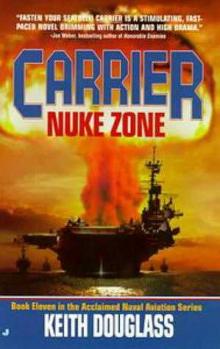 Nuke Zone c-11
Nuke Zone c-11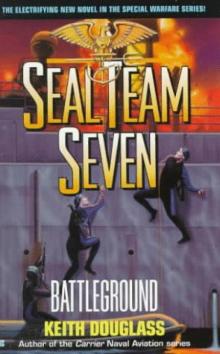 Seal Team Seven 6 - Battleground
Seal Team Seven 6 - Battleground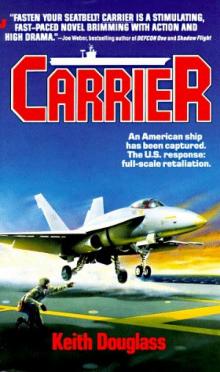 Carrier c-1
Carrier c-1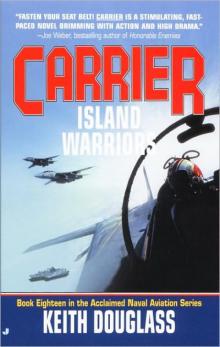 Island Warriors c-18
Island Warriors c-18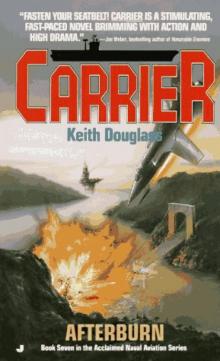 Afterburn c-7
Afterburn c-7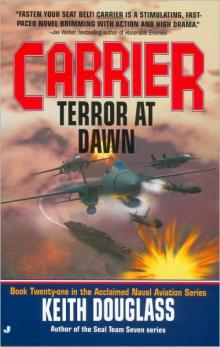 Terror At Dawn c-21
Terror At Dawn c-21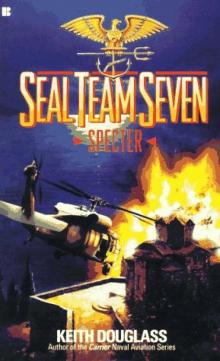 Specter sts-2
Specter sts-2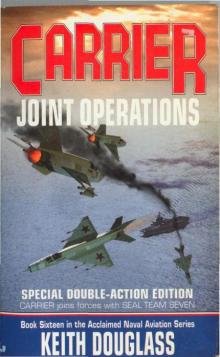 Joint Operations c-16
Joint Operations c-16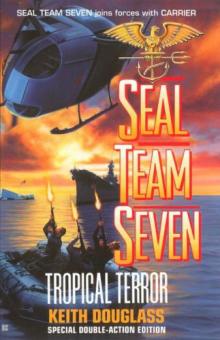 Tropical Terror sts-12
Tropical Terror sts-12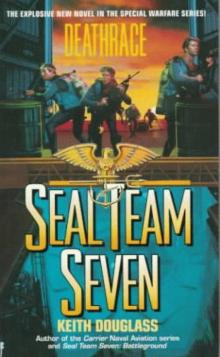 Seal Team Seven 7 - Deathrace
Seal Team Seven 7 - Deathrace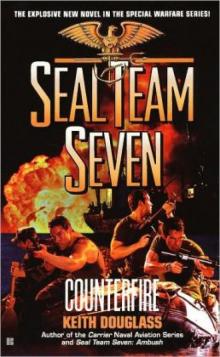 Counterfire sts-16
Counterfire sts-16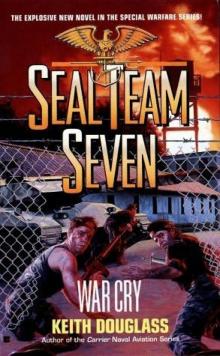 War Cry sts-9
War Cry sts-9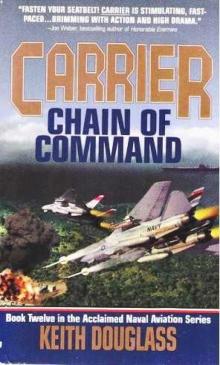 Chain of Command c-12
Chain of Command c-12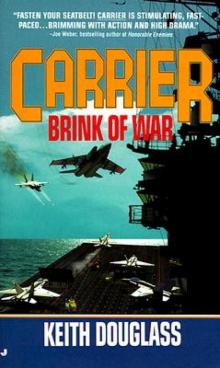 Brink of War c-13
Brink of War c-13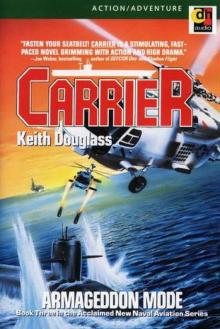 Armageddon Mode c-3
Armageddon Mode c-3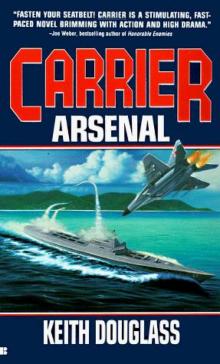 Arsenal c-10
Arsenal c-10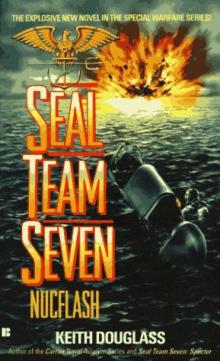 Nucflash sts-3
Nucflash sts-3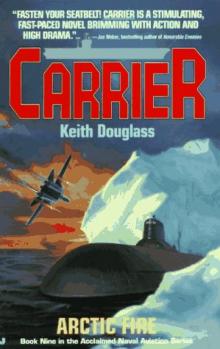 Arctic Fire c-9
Arctic Fire c-9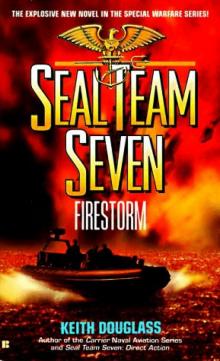 Firestorm sts-5
Firestorm sts-5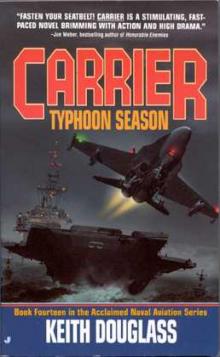 Typhoon Season c-14
Typhoon Season c-14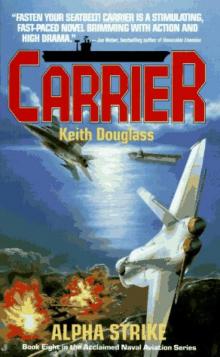 Alpha Strike c-8
Alpha Strike c-8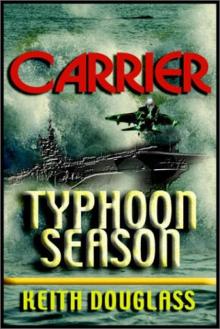 Carrier 14 - TYPHOON SEASON
Carrier 14 - TYPHOON SEASON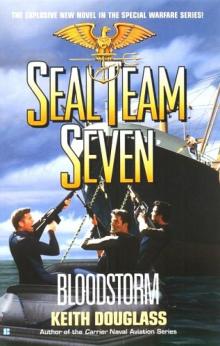 Bloodstorm sts-13
Bloodstorm sts-13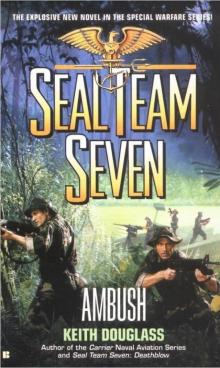 Ambush sts-15
Ambush sts-15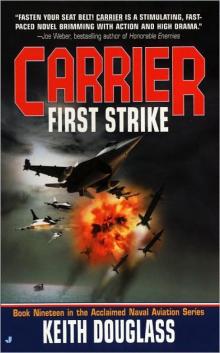 First Strike c-19
First Strike c-19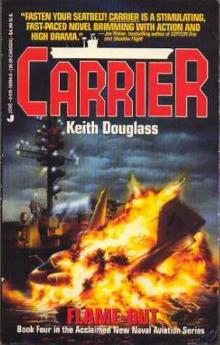 Flame Out c-4
Flame Out c-4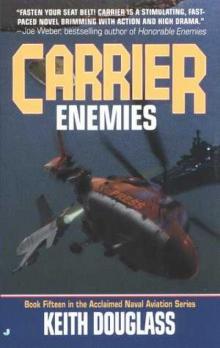 Enemies c-15
Enemies c-15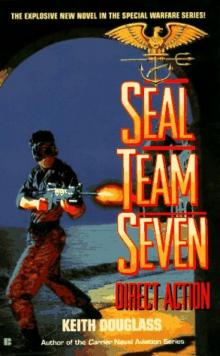 Seal Team Seven 04 - Direct Action
Seal Team Seven 04 - Direct Action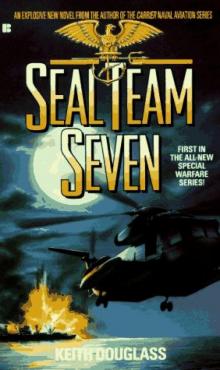 Seal Team Seven 01 - Seal Team Seven
Seal Team Seven 01 - Seal Team Seven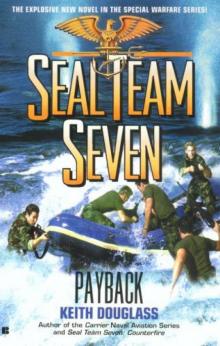 Payback sts-17
Payback sts-17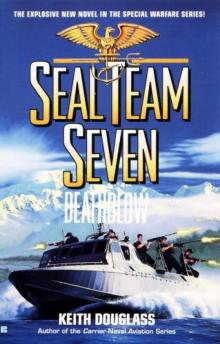 Death Blow sts-14
Death Blow sts-14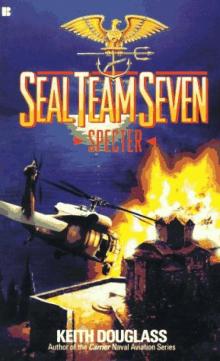 Seal Team Seven 02 - Spector
Seal Team Seven 02 - Spector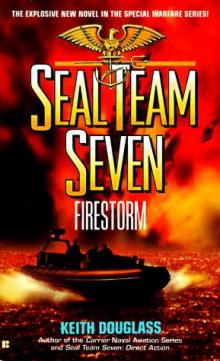 Seal Team Seven 5 - Firestorm
Seal Team Seven 5 - Firestorm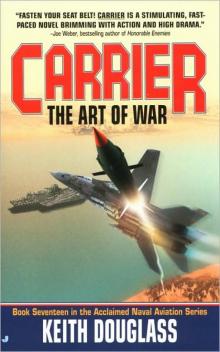 The Art of War c-17
The Art of War c-17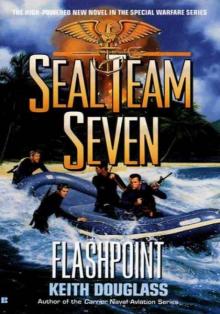 Flashpoint sts-11
Flashpoint sts-11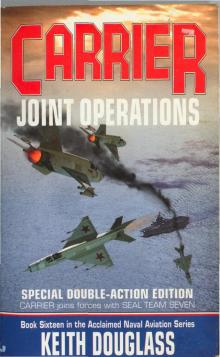 Carrier - Joint Operation Book 16
Carrier - Joint Operation Book 16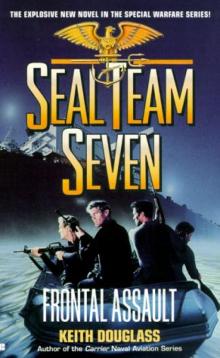 Frontal Assault sts-10
Frontal Assault sts-10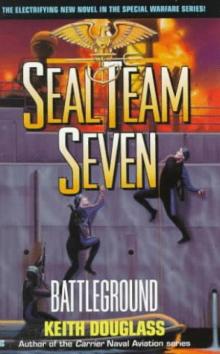 Battleground sts-6
Battleground sts-6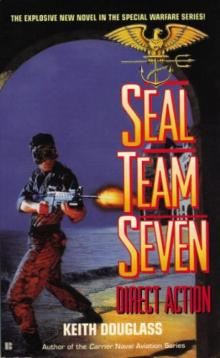 Direct Action sts-4
Direct Action sts-4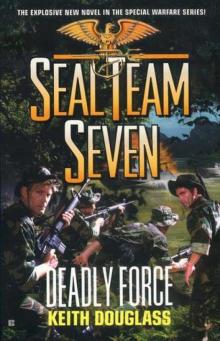 Deadly Force sts-18
Deadly Force sts-18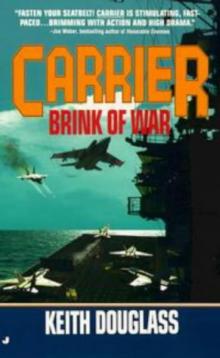 Carrier 13 - Brink of War
Carrier 13 - Brink of War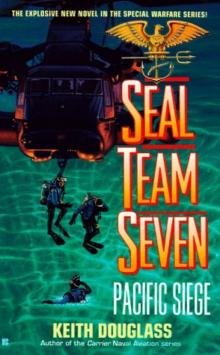 Pacific Siege sts-8
Pacific Siege sts-8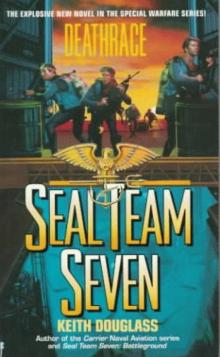 Deathrace sts-7
Deathrace sts-7